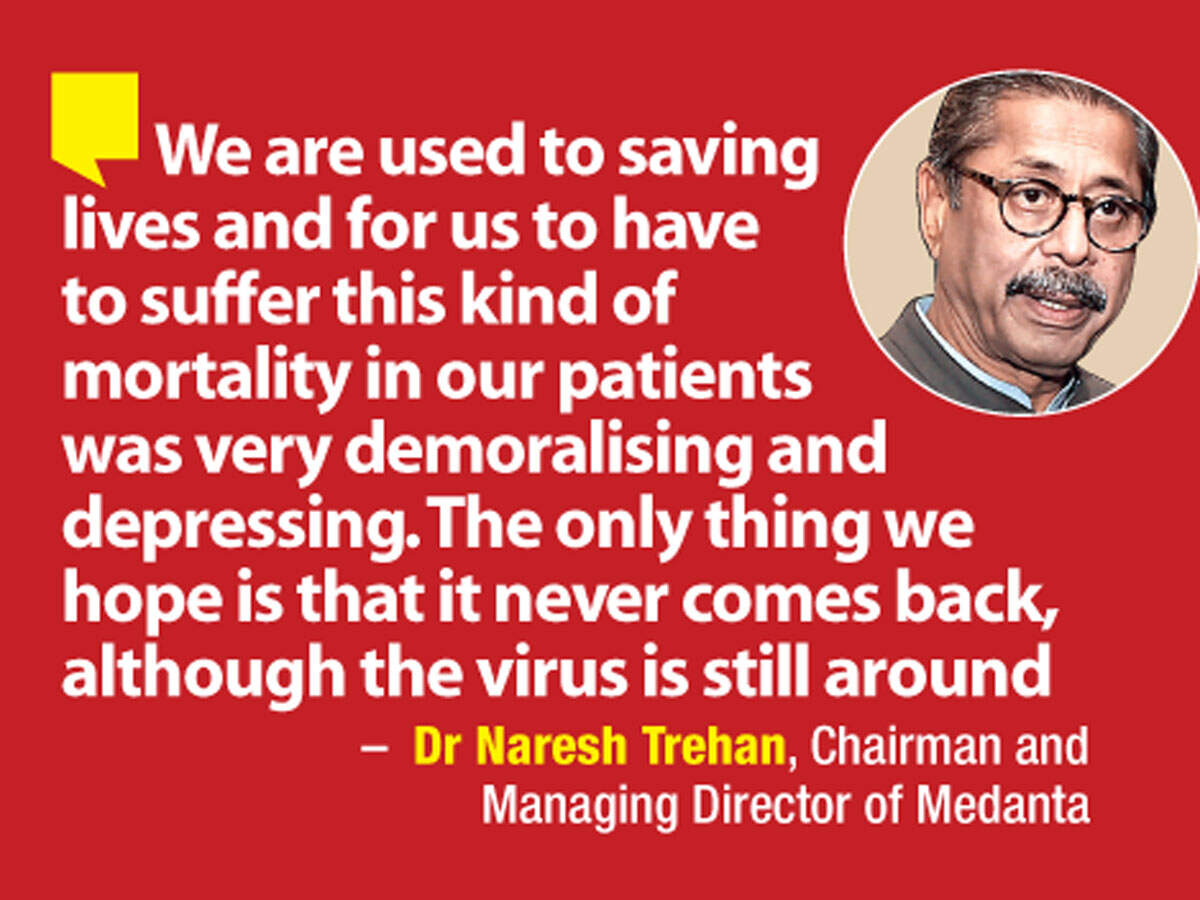
‘We could have saved 95-97% of lives, but it was devastating to see family, friends go’
Dr Naresh Trehan, Chairman and Managing Director, Medanta shares that the second wave shook the medical fraternity. “It all started last March, then declined for two to three months before the commotion started again earlier this year. If you look at it, the frontline COVID warriors were under enormous stress anyway, but the problem was that the second wave was four times the first wave, and it basically shook the whole system because there was a lack of beds, a lack of oxygen. and drugs. And so we all fought day and night and the virus was so virulent that many people lost their lives. And this time, it hit the middle class and the youth, and not many people made it. It was very disappointing for all of us. We are used to saving lives and it was very frustrating and depressing for us to face such mortality in our patients. Still, we could have saved 95-97% of lives but young people going, people you knew, going, doctors’ family members and friends… it was a very devastating period . And the only thing we hope is that it will never come back, although the virus is still around,” he says.
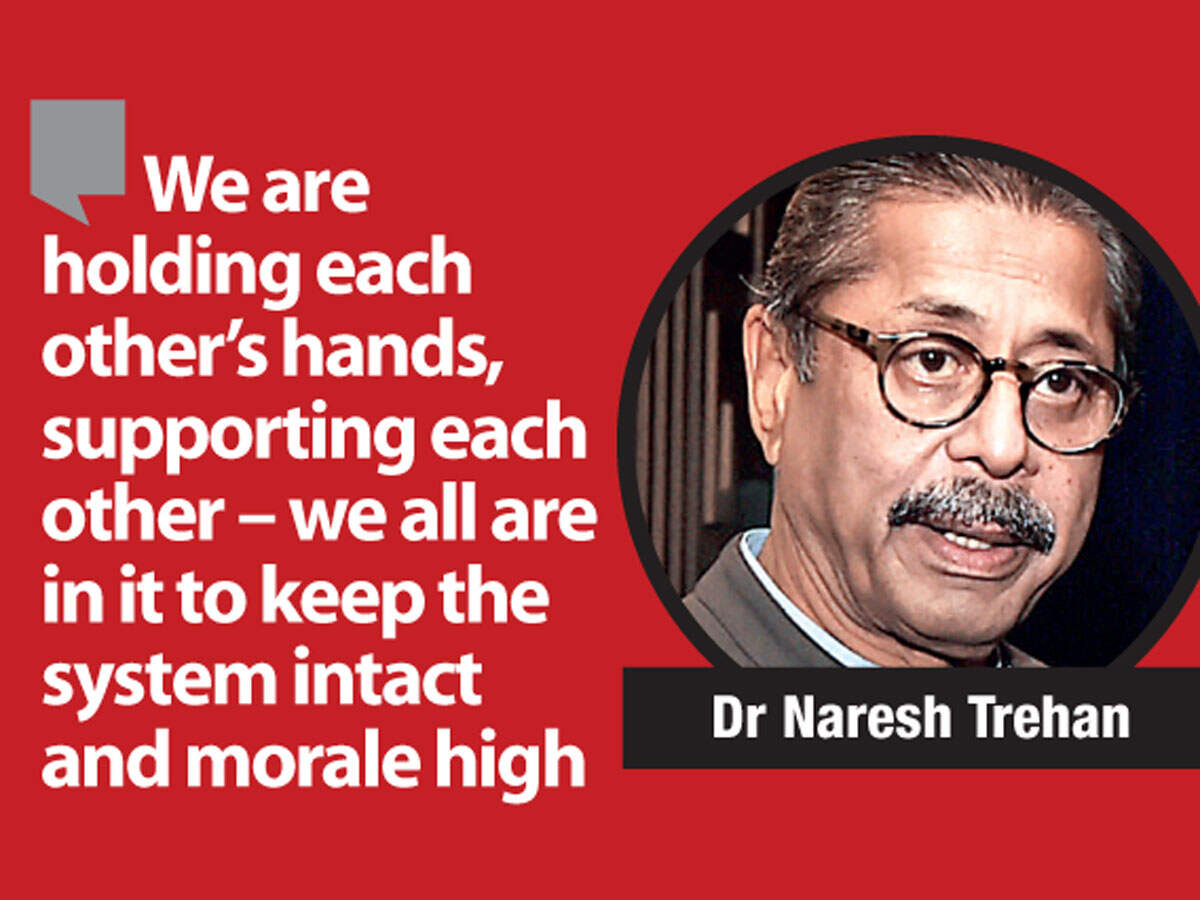
Doctors advise people to follow the practice of individual lockdown. “That means you are seeing masking everywhere, especially when you go out. You can also try double masking. Offices will have to be responsible for distancing, ventilation and no crowding. Life must be restored, but the main thing is that we do it deliberately and responsibly, ”he shares.
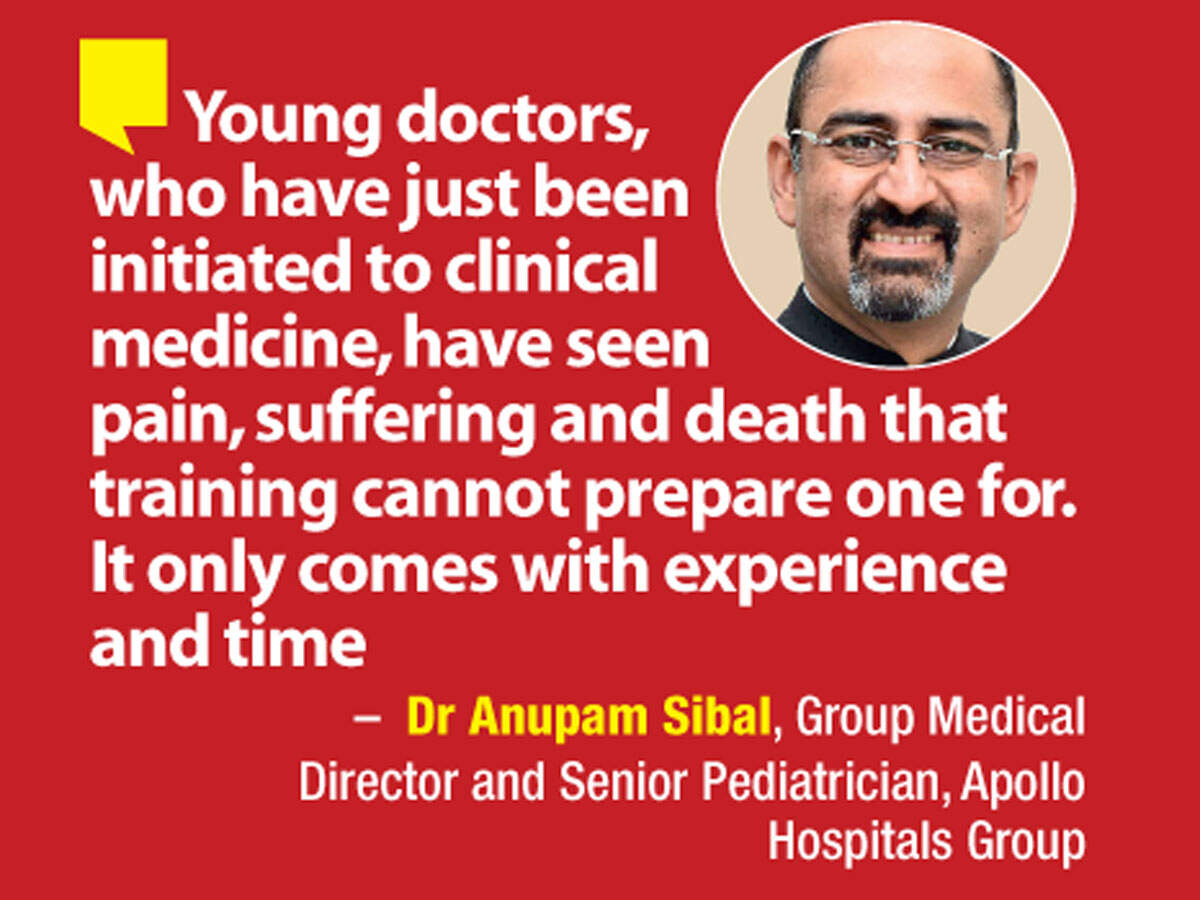
‘The loss of mentors, teachers, colleagues was devastating. It will take time to recover
Dr Anupam Sibal, Group Medical Director and Senior Pediatrician, Apollo Hospitals Group says, “Someone took a lot. Taking a closer look at how fragile life can be has provided an opportunity to value this gift of life more than ever. India has lost 1500 doctors in this fight against COVID. The loss of gurus, teachers and colleagues who laid down their lives in this fight has been devastating. It will take time to recover. An opportunity to manage time better came because there was so much more to do – administrative work, clinical care, motivating staff, interacting with troubled family members, or constantly updating knowledge. Doctors and researchers from all over the world came together and within days found the genome of SARS-COV-2. Diagnostic kits were developed rapidly, clinical and vaccine trials were launched in record time. Our understanding of the management of patients with COVID-19 has greatly improved, we now have efficacious medicine and vaccine administration is on a war footing. What would have happened in five years would have been achieved in months.
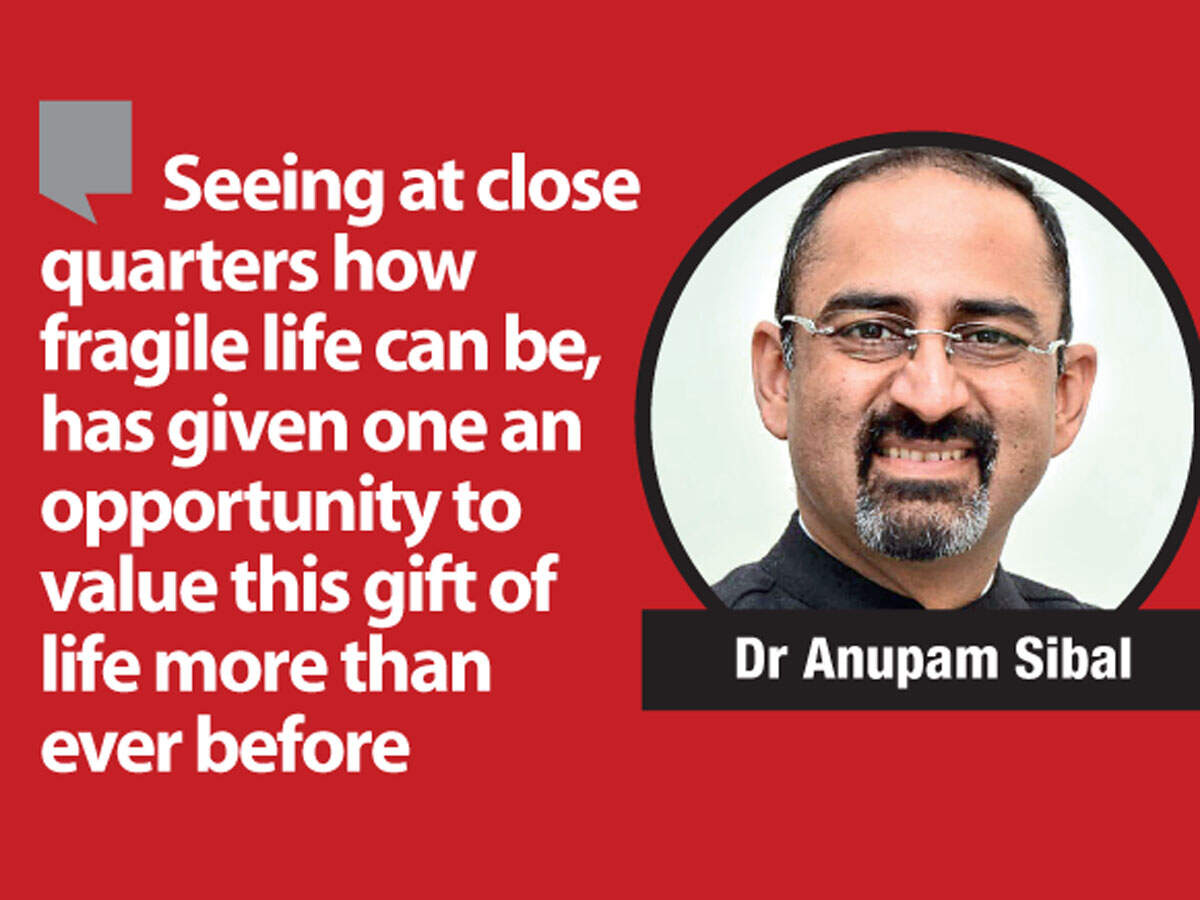
“We will do it together, and we will overcome this pandemic,” he says.
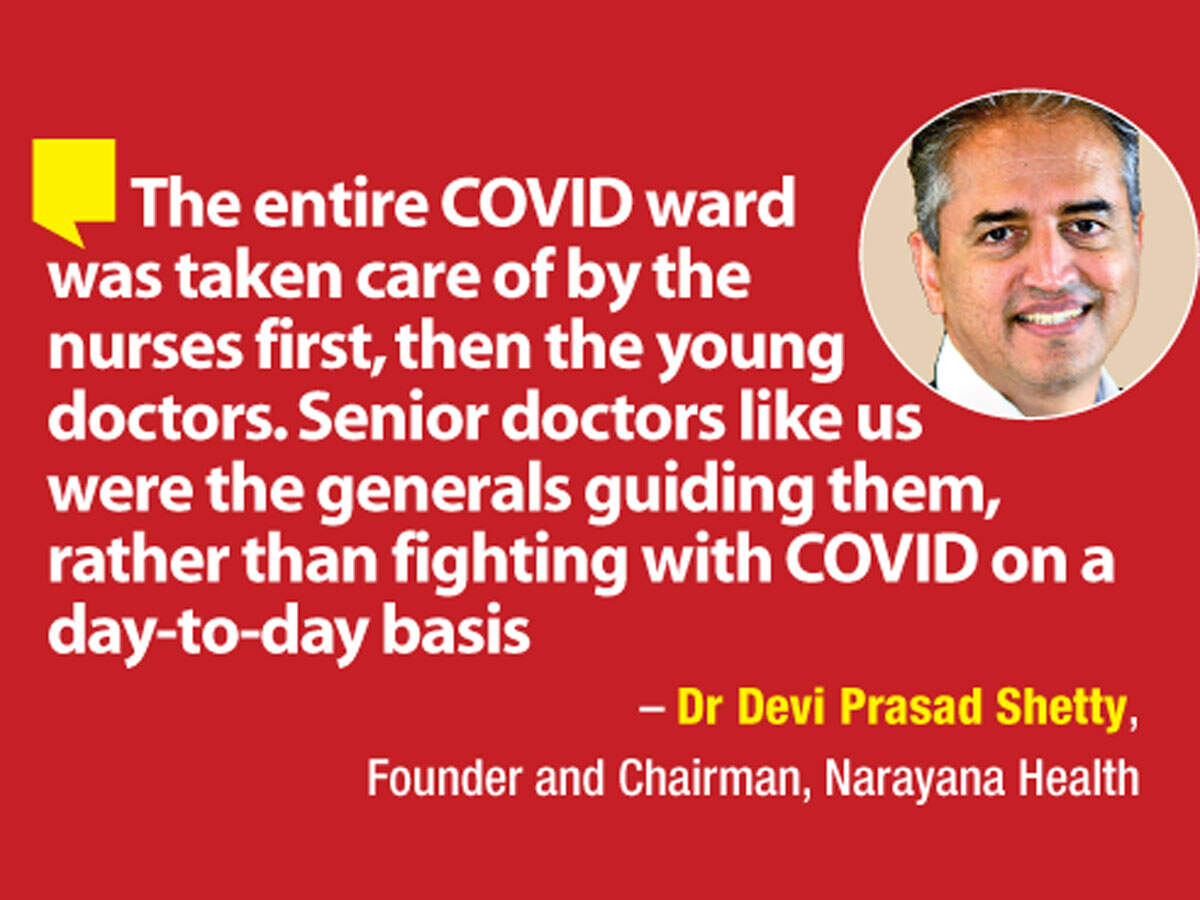
‘We didn’t know if we would be alive or dead until the end of the year’
Dr Devi Prasad Shetty, Founder and Chairman, Narayan Health, shares, “When the COVID wave started, we had no idea whether we would be alive or dead at the end of the year. It was like going to a war front without any guarantee that you would come back. But we came up with it, thanks to the families. Still, the pressure remained till the vaccine arrived. The vaccine changed everything. But the beauty of this (period is that) has made us reset our lives, our future, the meaning of life, the purpose of the profession, everything now. And all the doctors that have survived are now 100% better doctors, better human beings. COVID has taught a lot about life and future. It has made us better human beings.” He also emphasizes that it is nurses and young doctors who fight in the trenches day in and day out. “The entire COVID ward was looked after by nurses first, then young doctors. Like us Instead of fighting COVID on a day-to-day basis, senior doctors were like generals guiding them,” he says.
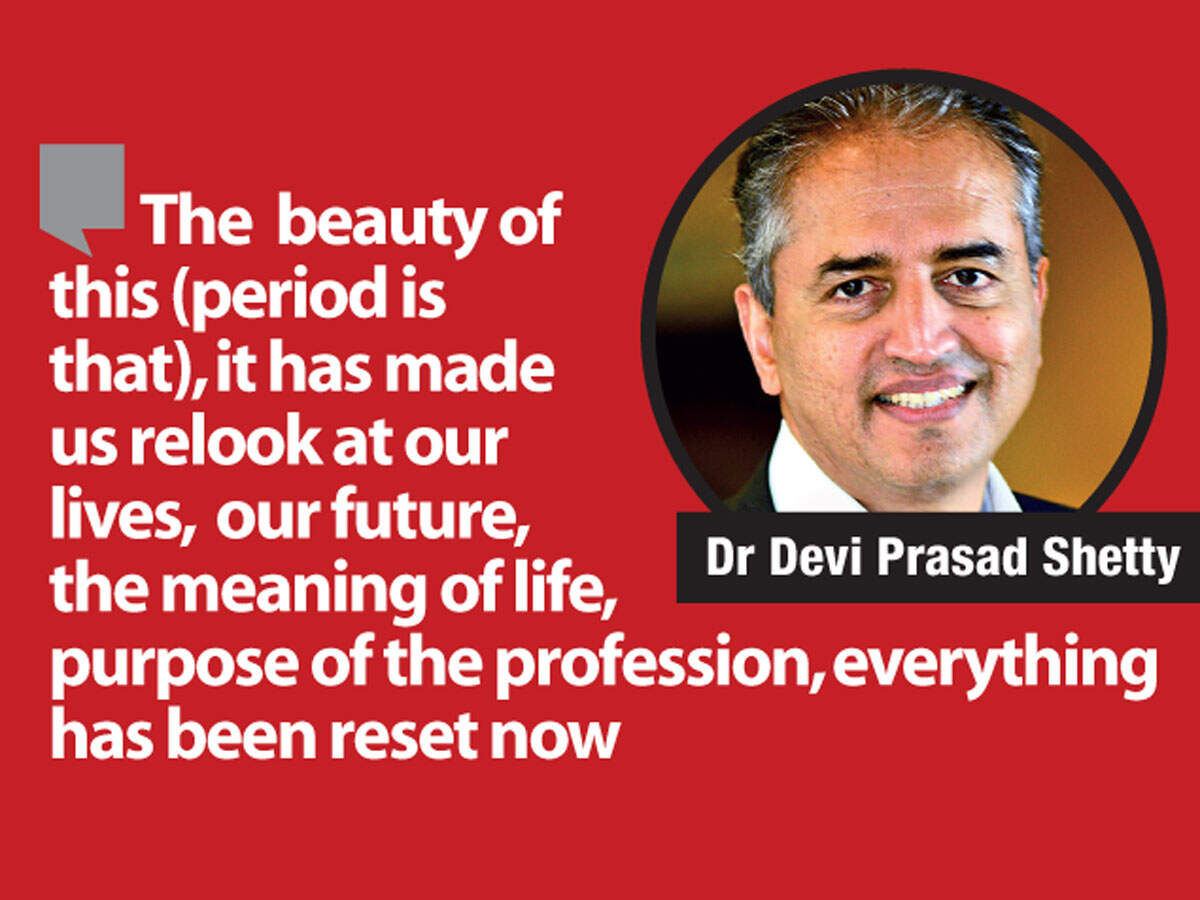
The doctor says that going forward, during the unlocking process, we need to reset our expectations. “People are thinking that one day, COVID will disappear from the earth and life will be back to normal. This cannot happen. We have to accept that COVID will be there, so every person should be responsible for their life and the lives of their loved ones. But since life has to return to normal, policies have to encourage and reward vaccination,” he shares.
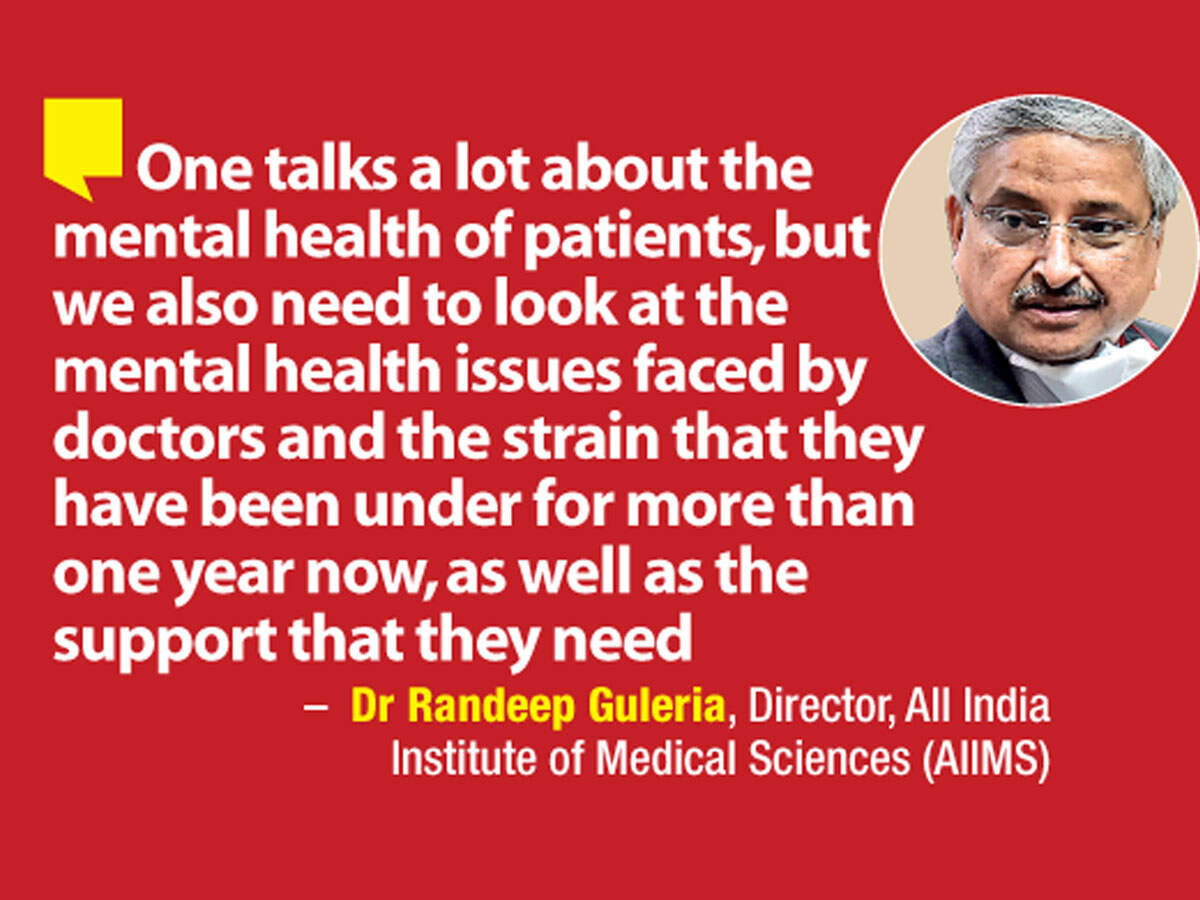
‘The second wave has a huge impact on the mental health of health workers’
Dr Randeep Guleria, Director, All India Institute of Medical Sciences (AIIMS), shared that the second wave was difficult for healthcare workers due to the rise in the number of cases. “It was challenging because someone had prepared but the sheer number of cases put so much pressure on the health system. We really had to innovate in a lot of ways. We also saw the loss of many health workers, it was really quite disturbing,” he says.
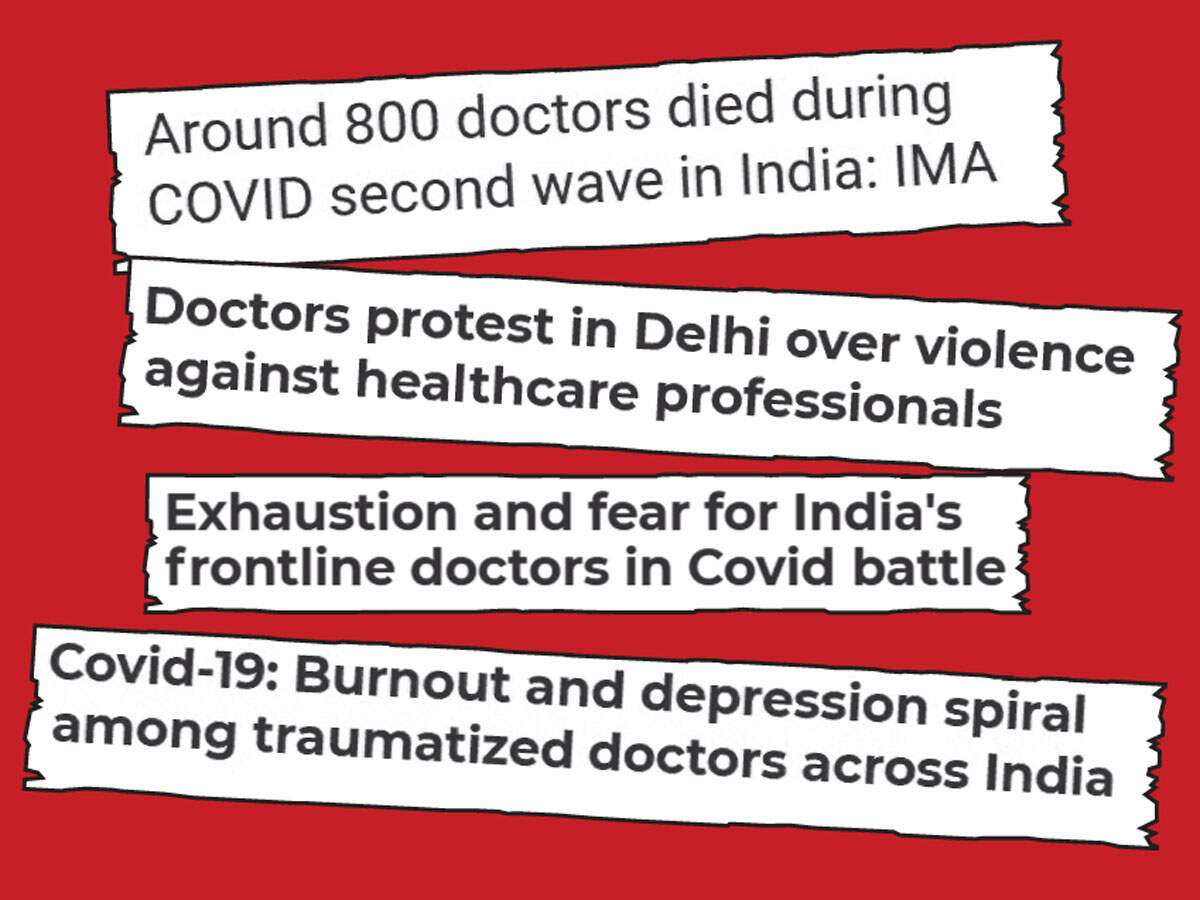
He says the trauma suffered by junior doctors and nurses during this period and its impact on them needs to be addressed. “We need to do more. In our hospital, we have asked health professionals, especially junior doctors, to contact us. The second wave had a huge impact on the mental health of healthcare workers, who have to undergo a major crisis in a short period of time. Number of patients, emergencies and deaths faced. A lot is said about the mental health of patients, but we also need to look at the mental health issues faced by doctors, which they have been facing since a year. Been doing it for a long time.”
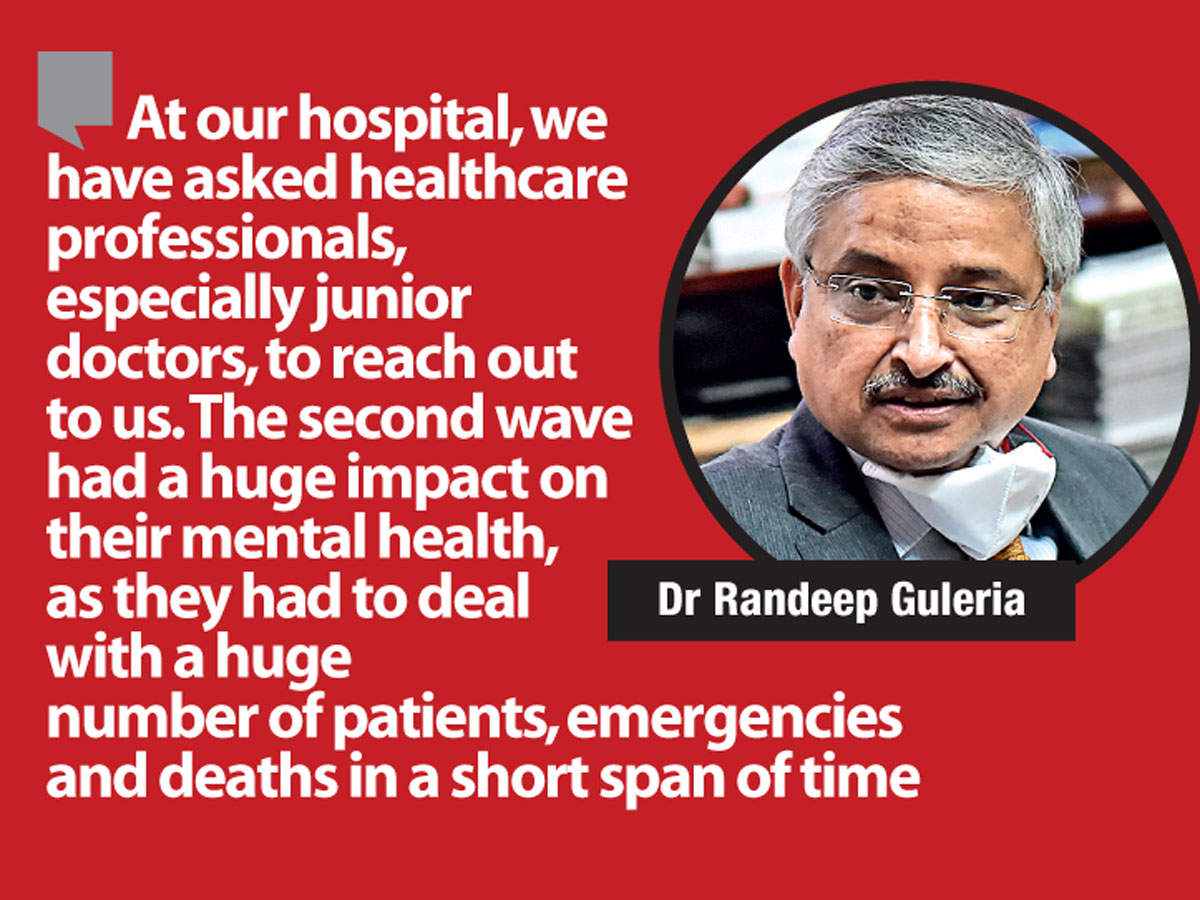
Going ahead, he explains that people need to keep following the COVID Appropriate Practices (CAB). “There are two-three things that we need to do. One is that we need to aggressively educate people and bring about changes in human behavior, so that we can follow proper measures like wearing masks, social distancing, washing hands etc – which are still very important. The person has a tendency to develop a loose attitude due to the period of the pandemic. However, it is CAB that will help us get out of the pandemic along with vaccination. The second most important thing that we need to do is basically develop strategies for vaccination and surveillance of any area where the number of cases has increased. The reopening of other activities like schools, colleges and gyms should depend on the number of cases in the area. It’s like a reward and punishment system – if you follow COVID appropriate behavior and there are fewer cases, there will be freedom and if you don’t follow it and there are more cases, there will be more restrictions. ”
.